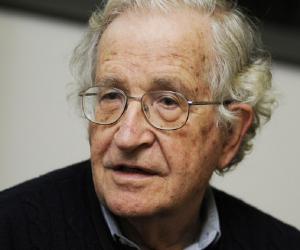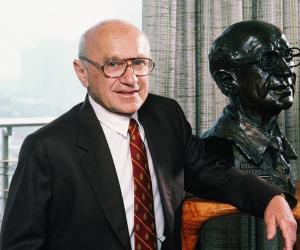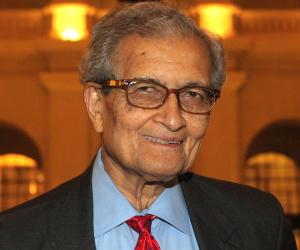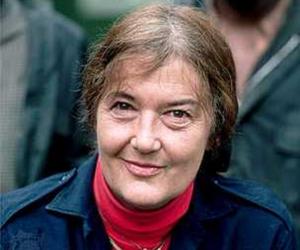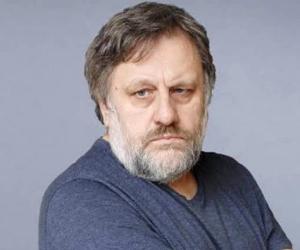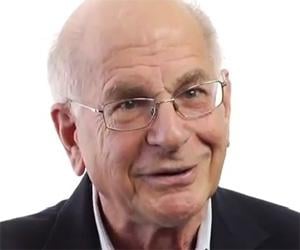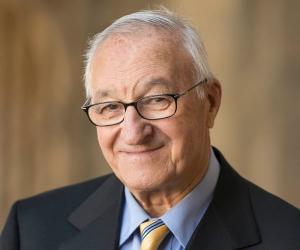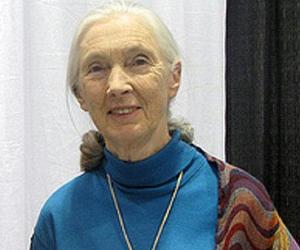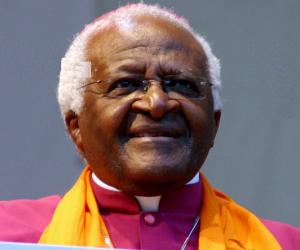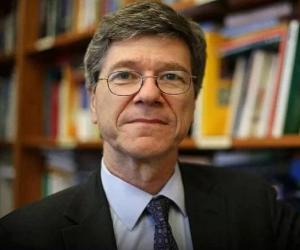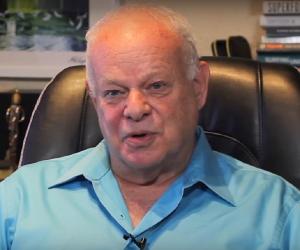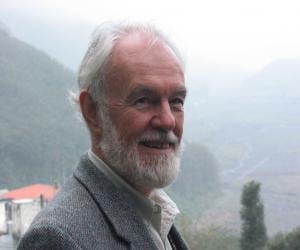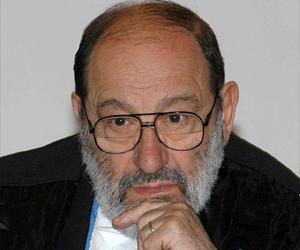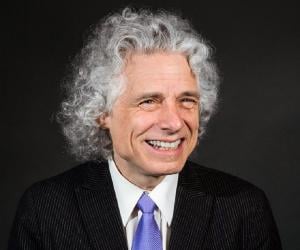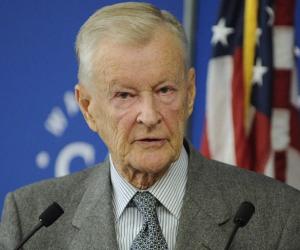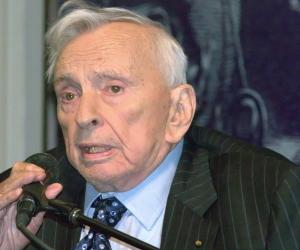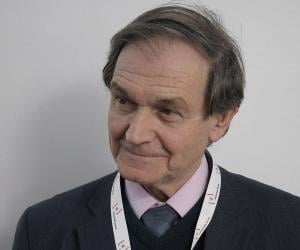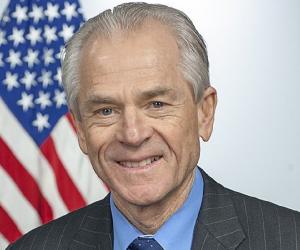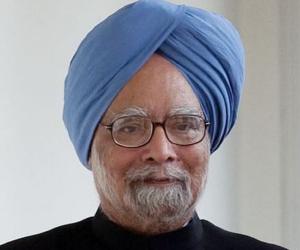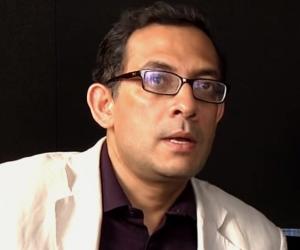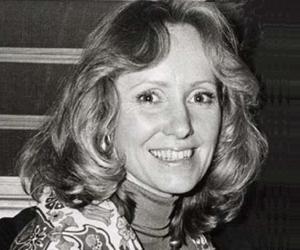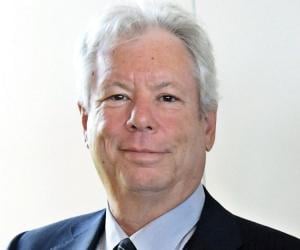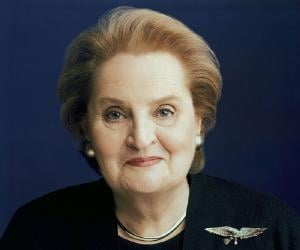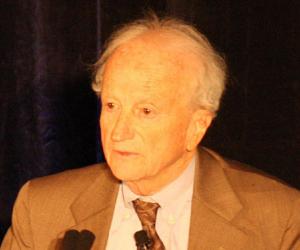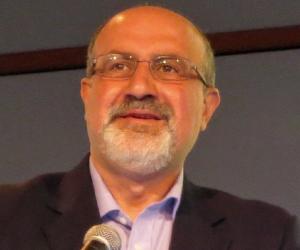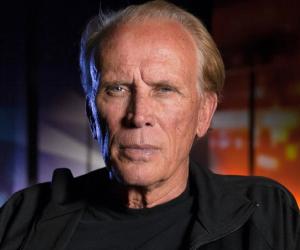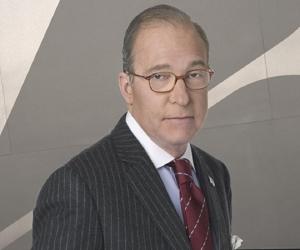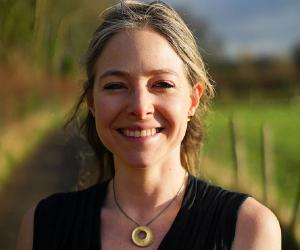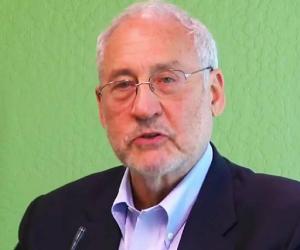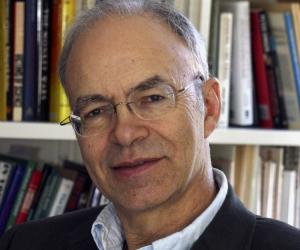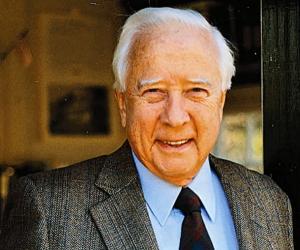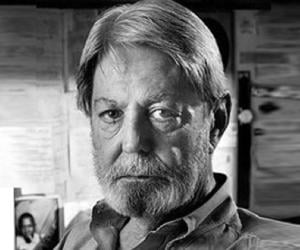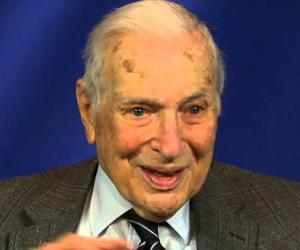Regarded by many as the father of modern linguistics, Noam Chomsky has authored over 100 books on varied topics, such as politics, linguistics, and war. A multi-talented personality, Noam Chomsky is considered a popular figure in analytic philosophy. Apart from influencing a wide array of academic fields, he has also contributed to the development of cognitivism.
One of the few personalities known for his disdain of self-promotion, Thomas Sowell is an important American social theorist and economist. Over the years, he has played a prominent role working as a faculty member of many prestigious universities, such as the University of California, Los Angeles (UCLA) and Cornell University.
Milton Friedman was an American economist. Widely regarded as one of the most influential economists of the 20th century, Friedman was honored with the Nobel Memorial Prize in Economic Sciences in 1976. One of the most influential personalities of the Chicago school of economics, Friedman mentored people like Gary Becker and Thomas Sowell who went on to become leading economists.
Slavoj Žižek is a Slovenian philosopher whose works in subjects, such as continental philosophy, Marxism, Hegelianism, and psychoanalysis, has gained him international influence. Often dubbed a celebrity philosopher and Elvis of cultural theory, Žižek was named in Foreign Policy's Top 100 Global Thinkers list in 2012. His work has had an impact on widespread public audiences and academic.
Daniel Kahneman is an Israeli economist and psychologist. He was honored with the 2002 Nobel Memorial Prize in Economic Sciences for his work on behavioral economics. In 2011, Kahneman was named among the top global thinkers by Foreign Policy magazine. In 2015, Daniel Kahneman was ranked seventh in the most influential economist in the world list published by The Economist.
Albert Bandura is a Canadian-American psychologist who has made significant contributions to several fields of psychology, such as personality psychology, therapy, and social cognitive theory. Regarded as the greatest living psychologist, Bandura is also counted among the most influential psychologists ever. He has been honored with over 16 honorary degrees. In 2016, Albert Bandura received the National Medal of Science.

Renowned sociologist and cultural theorist Jean Baudrillard is remembered for introducing concepts of hyperreality and simulacrum. Initially a teacher of German literature in schools, he later taught sociology at Paris X Nanterre. He coined the phrase the desert of the real, which was later used in the film The Matrix.
Canadian clinical psychologist, writer and YouTuber, Jordan Peterson became internationally known in the 2010s for his views on cultural and political issues. He propogates his views and ideas primarily through YouTube and podcasts. He has shared many videos and podcasts that have received millions of views.
Jane Goodall is an English anthropologist and primatologist. Goodall's research proved that chimpanzees could use tools like stalks of grass to fish out termites from termite holes; this also challenged the long-held belief that chimpanzees were vegetarians. Goodall also discovered that chimpanzees are capable of emotions like sorrow and joy. Goodall is also credited with founding the Jane Goodall Institute.
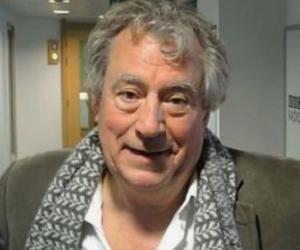
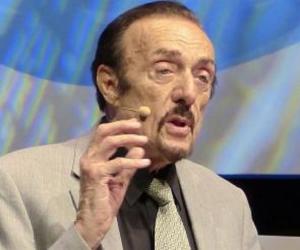
Psychologist and Stanford professor Philip Zimbardo is best known for his Stanford prison experiment, which proved how prisoners get abusive due to situational factors. He is also known for his books The Lucifer Effect and The Time Paradox and has received a Lifetime Achievement Award from the American Psychological Foundation.
David Harvey is a Marxist economic geographer, podcaster, and a fellow of the British Academy. He is currently a distinguished professor of anthropology and geography at the Graduate Center of the City University of New York (CUNY). He has authored many books and essays and is one of the most cited authors of books in the humanities and social sciences.
Italian novelist Umberto Eco is best remembered for his novels The Name of the Rose and Foucault's Pendulum. He also taught at the University of Bologna and had released quite a few children’s books and translations. He was also known for his work on semiotics and medieval studies.
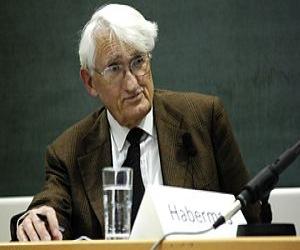
German philosopher and sociologist Jürgen Habermas is counted among the most influential philosophers across the world and is identified with the tradition of critical theory and pragmatism. He influenced many disciplines through his work which addresses communicative rationality and the public sphere, and includes topics starting from social-political theory to aesthetics, language to philosophy of religion, and epistemology.
Steven Pinker is a Canadian-American linguist, cognitive psychologist, and popular science author. He is also a supporter of the computational theory of mind and evolutionary psychology. His works have earned him awards from organizations like the National Academy of Sciences, the American Psychological Association, and the American Humanist Association. In 2013, he was named in Prospect magazine's World Thinkers list.
Gore Vidal was an American intellectual and writer. He served as a major inspiration to gays, lesbians, and bisexuals as he was openly bisexual and often incorporated LGBT characters in his novels, which was very unusual at the time. He was also known for his debates with William F. Buckley Jr., which inspired the 2015 documentary film Best of Enemies.
Roger Penrose’s contribution to the research related to the black hole and general relativity earned him the Nobel Prize in Physics in 2020. The Emeritus Rouse Ball Professor of Mathematics at Oxford, Roger is also a fellow of Wadham College, St John's College of Cambridge, and University College London.
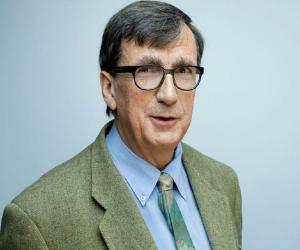
Holberg Prize-winning French sociologist and anthropologist Bruno Latour had initially studied theology and even received his PhD in the subject. His later research Ivory Coast drew him to anthropology, and he soon gained fame as a renowned academic in the field, having co-written iconic books such as Laboratory Life.
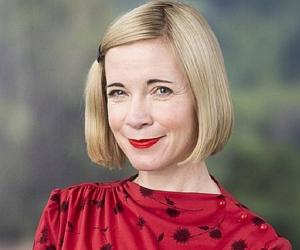
British historian and author Lucy Worsley is not just a curator at the charity Historic Royal Palaces, but is also a famed TV presenter, popular for her work on series such as A Very British Murder and If Walls Could Talk. Suffering from a speech disorder, she pronounces “r” in a peculiar way.
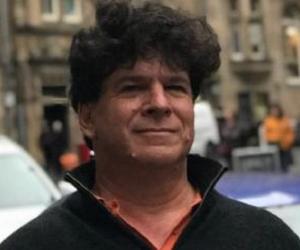
Apart from being the MD of Thiel Capital, mathematician and economist Eric Weinstein is also a researcher at Oxford. The Harvard alumnus had quit academia for 20 years before he returned again. He coined the term “intellectual dark web” and works on topics such as gauge theory, risk management, and immigration.
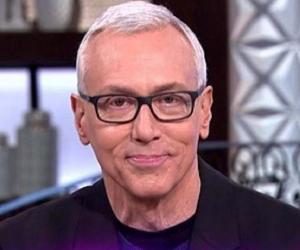
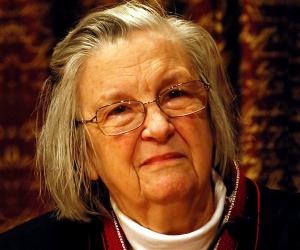
The 13th Prime Minister of India, Manmohan Singh became the first Sikh in office when he took office in 2004. A prominent economist and academic, he held several key posts in the Government of India in the 1970s and 1980s. Known for his humility, he has been described by the media as "one of the world's most revered leaders."
Born to economics professor parents, Abhijit Banerjee grew up in India before he moved to the U.S. to study at Harvard. He later taught at Harvard and Princeton and is now associated with MIT. His studies on the ways of reducing world poverty won him a Nobel Prize.
Lola Van Wagenen is an American historian who is credited with co-founding non-profit educational organizations like Consumer Action Now (CAN) and Clio Visualizing History, Inc. Consumer Action Now went on to establish several environmental education and consumer-oriented programs in an attempt to raise awareness about the effects of consumers' buying habits on the environment.
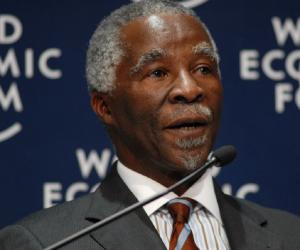
Thabo Mbeki is a South African politician who is currently serving as the chancellor of the University of South Africa. From 1999 to 2008, he served as the president of South Africa. During his tenure as the president, the South African economy grew, creating employment opportunities. Over the years, he has received several awards, including the prestigious Good Governance Award.
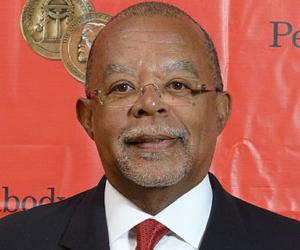
Henry Louis Gates Jr. is an American literary critic, historian, professor, filmmaker, and public intellectual. He is currently serving as the director of the Hutchins Center at Harvard University. Over the years Gates has been honored with several prestigious awards including the National Humanities Medal. In 1997, he was named in Time magazine's 25 Most Influential Americans list.
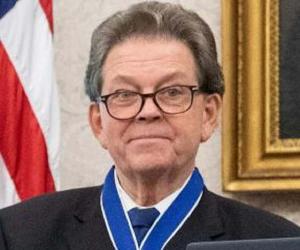
Yale and Stanford alumnus Arthur Laffer is now one of the greatest economists of the U.S. Best known for his Laffer curve and his theory of taxes that explained how low tax rates could eventually provide higher revenues, he has been crucial to the American tax system.
Lawrence Kudlow began his career as staff economist at the Federal Reserve Bank of New York and then served as financial analyst at Wall Street, before joining the Ronald Reagan administration. Later he became an economic media commentator with National Review, and hosted several shows on CNBC. During the Trump administration, he served as Director of the National Economic Council.
Nobel laureate Joseph E. Stiglitz is best known for his work on the theory of markets with asymmetric information. The MIT alumnus has taught at prestigious institutes such as Harvard and Stanford and currently teaches at Columbia University, He has been an economic advisor to the U.S. government, too.
American–Australian naturalist Terri Irwin is best known as the co-host of The Crocodile Hunter, along with her husband, the late animal expert Steve Irwin. She has also been part of shows such as Croc Files and Crikey! It's the Irwins, and helped in the development of Australia Zoo.
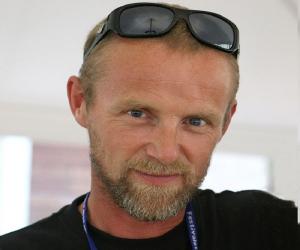
Jo Nesbø is a Norwegian writer, economist, musician, and former reporter and footballer. By 2021, Nesbø was declared the most successful Norwegian author ever when his translated works sold over 50 million copies; Nesbø's work has been translated into more than 50 languages. He is also associated with the band Di Derre where he is the main vocalist and songwriter.
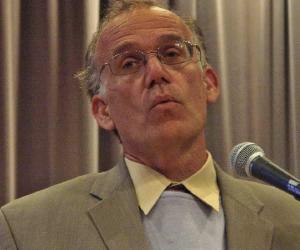
Historian and academic Victor Davis Hanson is best known for his opinions on warfare and politics in publications such as The New York Times and Wall Street Journal. He teaches at the California State University and Stanford's Hoover Institution. His academic interests include military history and classics.
Australian moral philosopher, Peter Singer, is currently the Ira W. DeCamp Professor of Bioethics at Princeton University. He specializes in applied ethics. He is best known for his book Animal Liberation, which is considered a seminal work in the animal liberation movement. The Council of Australian Humanist Societies recognized him as the Australian Humanist of the Year in 2004.
David McCullough was an American historian, author, narrator, and lecturer. Over the course of his illustrious career, McCullough received two National Book Awards, two Pulitzer Prizes, and two Francis Parkman Prizes among other prestigious awards. In 2006, he was honored with America's highest civilian award, the Presidential Medal of Freedom. He also received over 40 honorary degrees.
